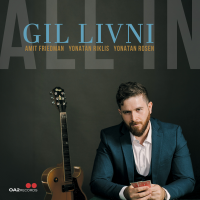Sergei Mikhalkov, who wrote the lyrics for the Soviet and Russian national anthems and also persecuted dissident writers as part of the Soviet propaganda machine, has died. He was 96.
Mikhalkov, who fathered two noted film directors, died Thursday in a Moscow hospital. A cause of death was not given.
He was born March 18, 1913, in Moscow. As a young author and war correspondent favored by Soviet dictator Josef Stalin, he was commissioned to write lyrics for a new Soviet anthem designed to inspire Red Army soldiers in the midst of World War II.
Mikhalkov's lyrics, co-written with journalist El Registan and set to music by Alexander Alexandrov, lauded Soviet dictator Josef Stalin, who “brought us up on loyalty to the people" and “inspired us to labor and to heroism."
The anthem propelled Mikhalkov into stardom that outlived Stalin and the system he created. After the dictator's death in 1953, the anthem was mostly performed without the lyrics, but Mikhalkov remained one of the most vocal and outspoken bards of Communism.
He received numerous state awards for his children's books, film scripts, plays and fiction. Millions of Russians can recite lines from his 1935 children's poem “Uncle Styopa."
Mikhalkov, who fathered two noted film directors, died Thursday in a Moscow hospital. A cause of death was not given.
He was born March 18, 1913, in Moscow. As a young author and war correspondent favored by Soviet dictator Josef Stalin, he was commissioned to write lyrics for a new Soviet anthem designed to inspire Red Army soldiers in the midst of World War II.
Mikhalkov's lyrics, co-written with journalist El Registan and set to music by Alexander Alexandrov, lauded Soviet dictator Josef Stalin, who “brought us up on loyalty to the people" and “inspired us to labor and to heroism."
The anthem propelled Mikhalkov into stardom that outlived Stalin and the system he created. After the dictator's death in 1953, the anthem was mostly performed without the lyrics, but Mikhalkov remained one of the most vocal and outspoken bards of Communism.
He received numerous state awards for his children's books, film scripts, plays and fiction. Millions of Russians can recite lines from his 1935 children's poem “Uncle Styopa."


























